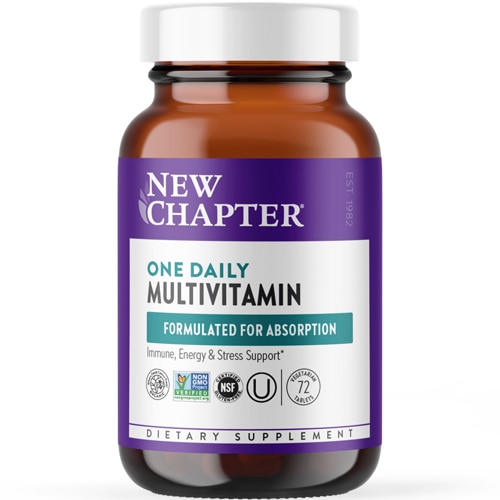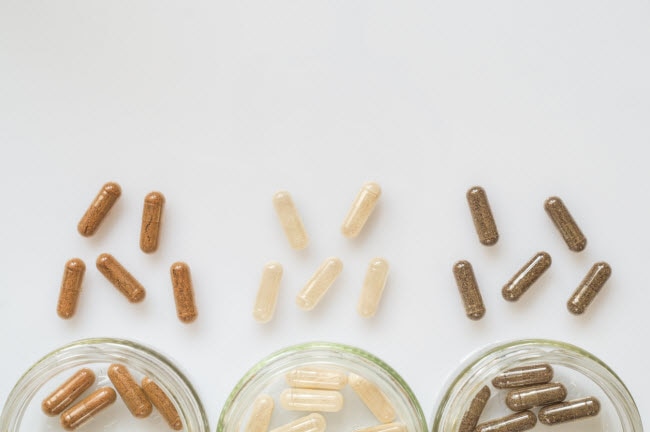When it comes to taking medications, vitamins and nutritional supplements, there can be a lot of rules—as in when to toss them, when to stop usage, and how much to take to better your health and stay safe.
Of course, you should always speak with your physician before taking a supplement to make sure there are no side effects or medical interactions with other prescriptions you might be taking; however, beyond that, you should also take note of expiration dates, as supplements, including vitamins, might actually have a date listed on the label.
“Expiration dates demonstrate the viability and stability of the formula - the strength of the nutrients,” says Carolyn Dean, MD, ND. And while the FDA does not require manufacturers to put an expiration date on dietary supplement products, there might be a “best buy” date or a date of manufacture on the packaging. (Related reading: How does the FDA regulate supplements?)
It seems kind of strange though— vitamins are generally pretty safe, so do those expiration dates really matter? And is it OK to take expired vitamins? Here’s what you need to know.
Vitamins don’t truly expire, but become loss potent over time, says Dr. Robert Glatter, MD, an assistant professor of emergency medicine at Northwell Health and attending emergency physician at Lenox Hill Hospital. “They typically have a shelf life of about two years. After that amount of time, they begin to break down or degrade,” he explains. So, taking “expired” vitamins might not give you the full effect you’re looking for.
Can you take expired vitamins?
Luckily, taking a vitamin after it expires shouldn’t lead to any harm. “As they break down, vitamins are not toxic in any sense and will not lead to any adverse consequences. But at the same time, they will also be less effective,” says Glatter.
It’s best to take vitamins before they expire, since they will lose their potency after the expiration date, but you don’t necessarily need to toss them ASAP if you have a brand new container sitting at home untouched. The two-year mark gives some wiggle room. If you’re super picky about vitamins and want to make sure you’re getting the maximum effect, then sure, toss them before those two years, but you can take them without fear.
Some vitamins have a longer shelf life than others
It’s hard to know for certain if some vitamins have different efficacy rates past their “best buy” dates. “It varies based on the stability testing of the product. These are special tests performed in a lab setting over a period of months and each formula has to be tested for its own unique qualities,” explains Dean.
However, there are some little tips to keep in mind when browsing your vitamin cabinet. Some vitamins will degrade faster, explains Glatter. “Vitamins A and D can also lose potency at a higher rate if exposed to continuous sunlight. And flax seed, probiotics, Vitamin E and fish oil should be refrigerated to extend their shelf life, since they are less stable at room temperature,” he says.
Not sure how to store supplements safely? In general, don’t store vitamins in a bathroom or kitchen cabinet, as there’s more heat and higher humidity. A linen closet or a drawer in your bedroom works much better.
Plus, you might have a longer shelf life for vitamins that are in tablet form, rather than edibles. “Because vitamins in tablet form don’t absorb as much water or moisture as chewable or gummy forms, they will typically last longer,” says Glatter.
The takeaway on vitamin expiration dates
It really depends on how much you care about quality. “When you purchase a dietary supplement, you are purchasing targeted nutrition that is supplemental to the food you are already eating at your dining room table,” says Dean.
Holding the same high standards of quality, freshness, and absorption of nutrients that you hold for the food on your plate will make your vitamins the most effective they can be, too. Just think: if you wouldn’t serve your family stale bread or wilted vegetables, you may not want to serve them supplements that have expired or are more than two years from their manufacturing date.
Want more information and advice? Read these expert tips for taking vitamins and supplements.





